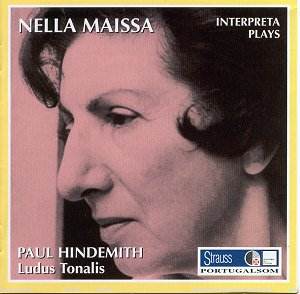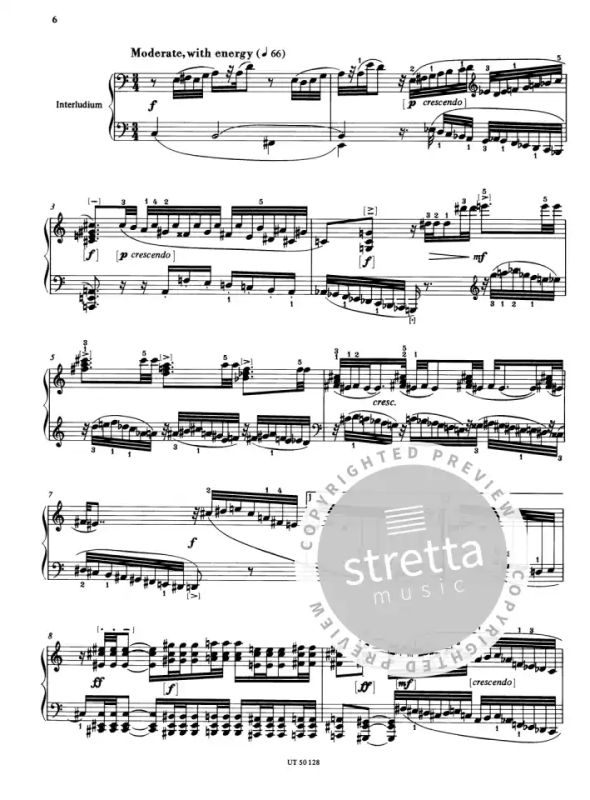



As a neoclassical gesture the Ludus tonalis is belated and doctrinaire in comparison to other neoclassicisms, for example Stravinsky’s. It would be interesting to know more about what led to the impetus to respond to Bach, and to demonstrate his own harmonic theory, at this particular moment. Ludus tonalis was composed in America, in 1942, and it may have been a response partly to Stravinsky, and perhaps also to early works by Babbitt and others. I suspect that for Hindemith it meant an opportunity to occlude sentiment in the name of complexity of construction. I’m not interested in technical analyses of fugues, because I am not sure of the purpose of demonstrating permutations of the form in America in the mid-twentieth century. What matters more, I think, is Ludus tonalis’s broader relation to modernity, and what it meant at that time to look back to the WTC. Gabriela Vlahopol’s essay “Baroque Reflections in Ludus Tonalis by Paul Hindemith,” which is available on the internet, summarizes the technical points and proposes some (mainly unconvincing) parallels to specific pieces in the WTC. Most liner notes and newspaper reviews focus on Hindemith’s harmonic theory, which is embodied in the sequences of fugues, and on the piece’s technical accomplishments. There is at least one dissertation, Debra Torok’s “Paul Hindemith’s Ludus Tonalis: Harmonic fluctuation analysis and its performance implications.” Hindemith apparently said he doubted there were many people left who could appreciate this level of composition. Ludus tonalis, which contains “interludes” and fugues in all 24 keys, is one of the twentieth century’s principal responses to Bach’s Well-Tempered Clavier. (Another is Shostakovich’s Twenty-four Preludes and Fugues, which I also review on this site.) An article comparing the Bach and Hindemith pieces was written in 1959 (Hans Tischler, “Hindemith’s Ludus tonalis and Bach’s Well-Tempered Clavier: A Comparison.” Music Review 20: 217-27), and an internet search turns up several master’s theses on the subject (some in Romania, for some reason).


 0 kommentar(er)
0 kommentar(er)
